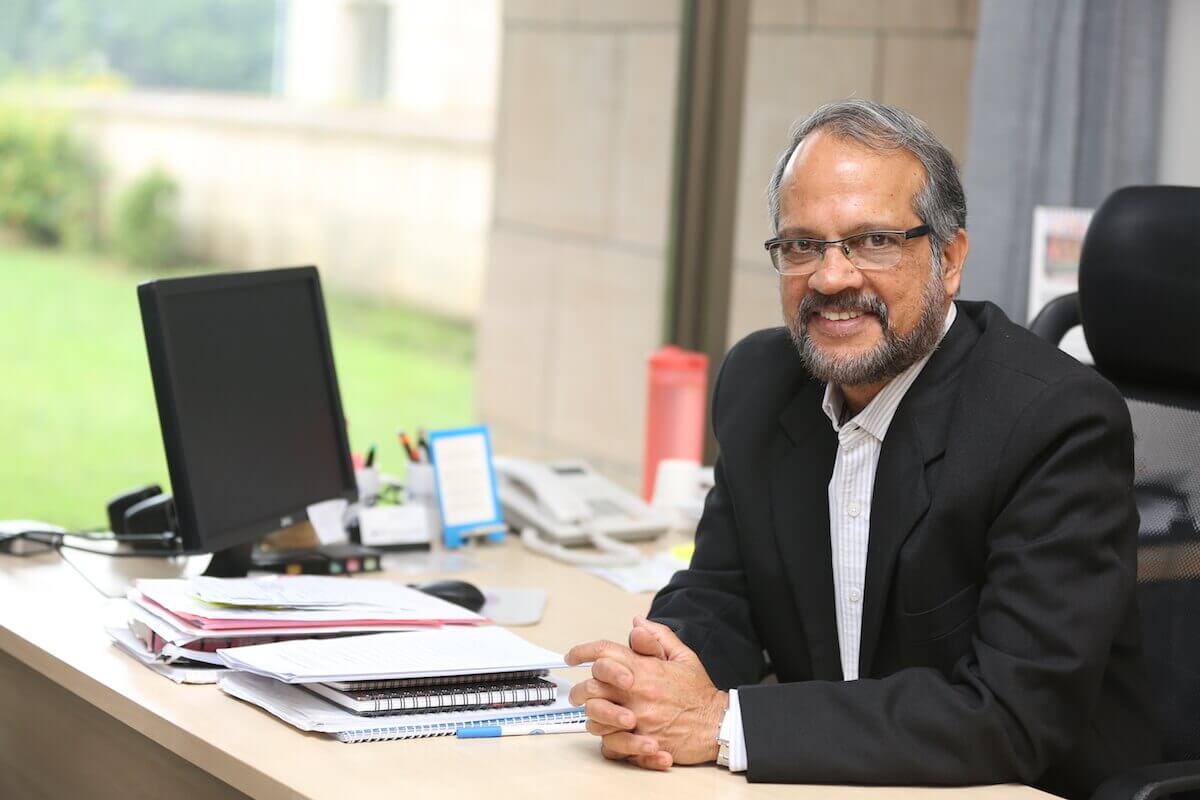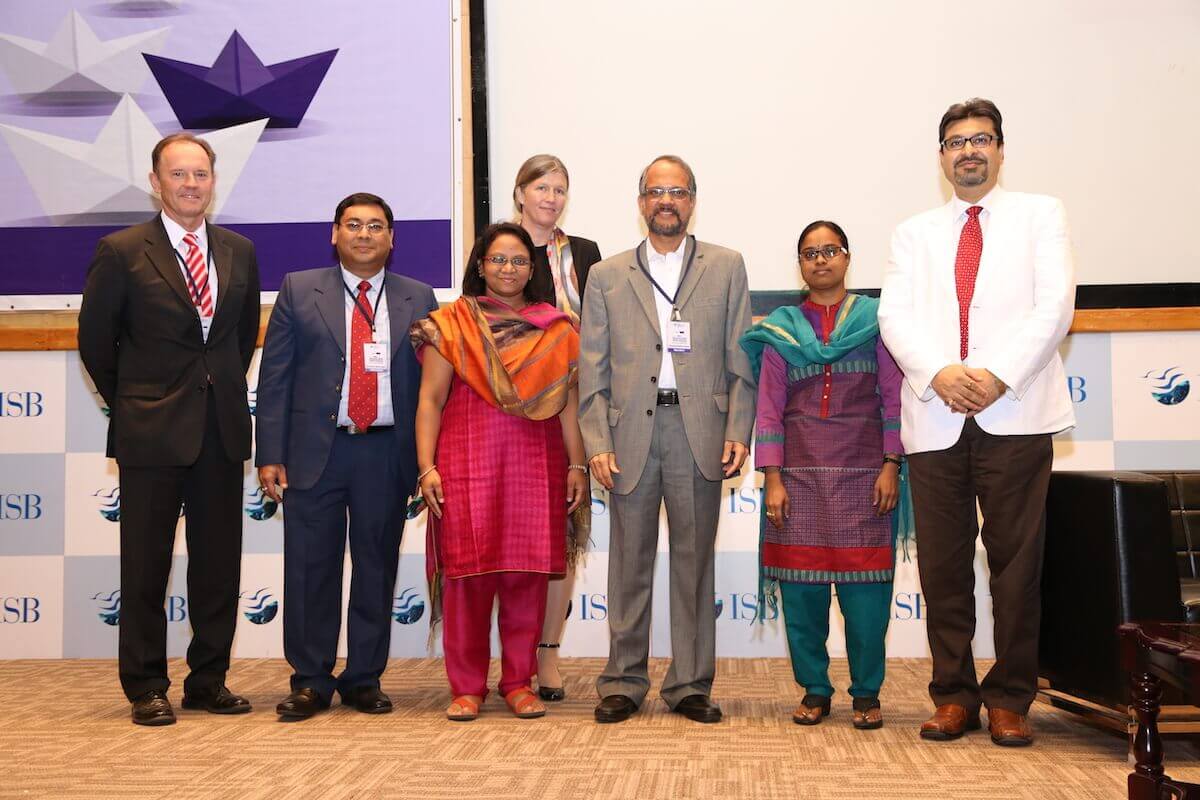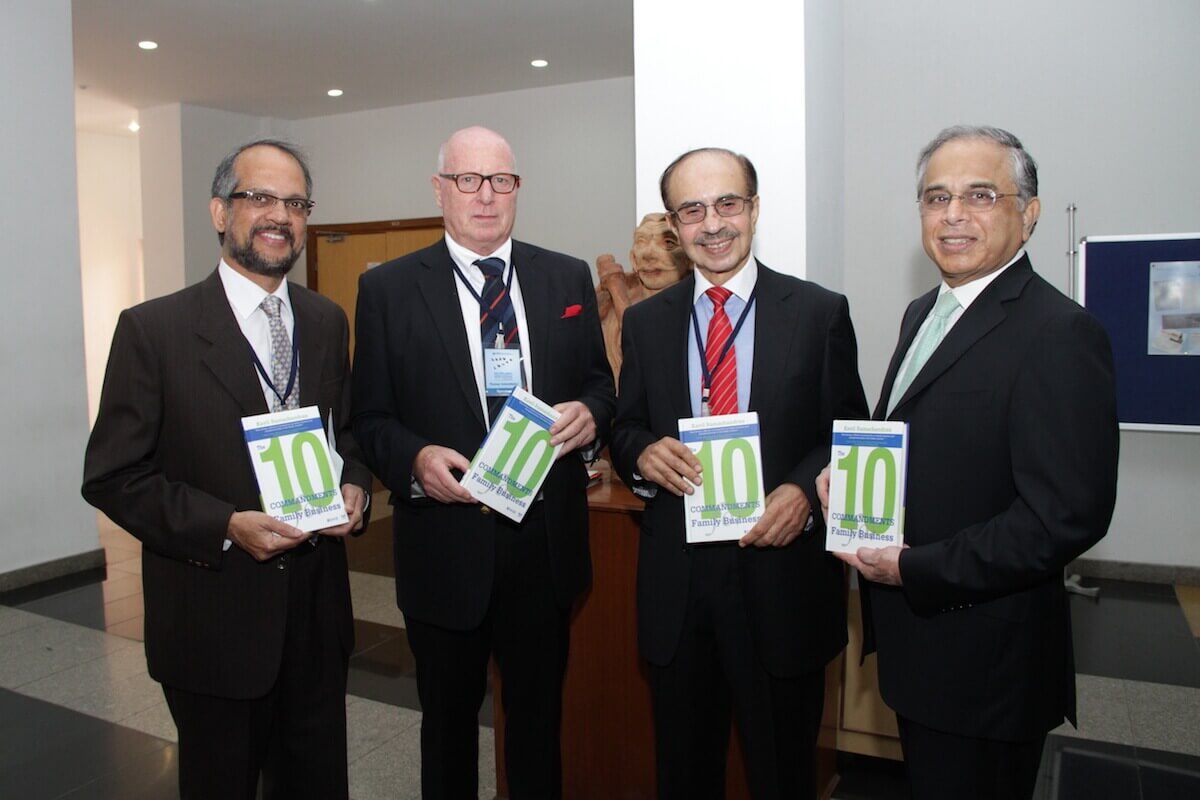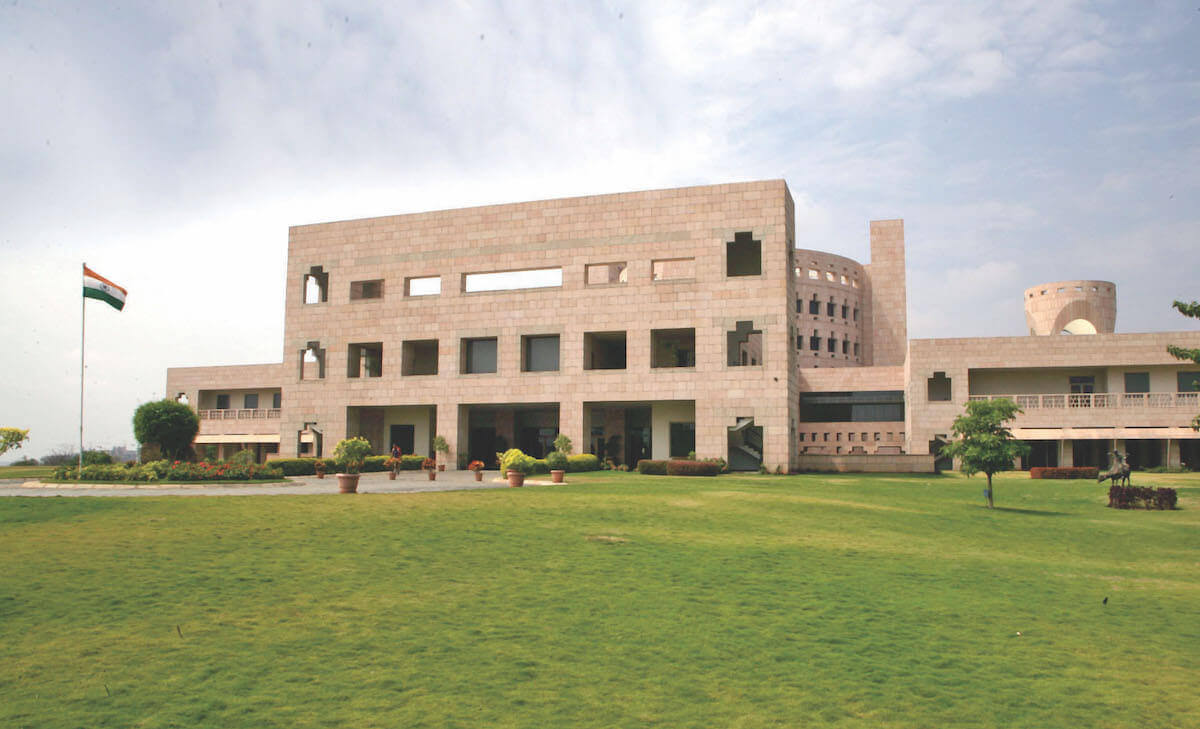Interview with Prof. Kavil Ramachandran, Executive Director of the Centre
Kavil Ramachandran was training for his dream job years before it had even been created. Today he is supporting family businesses throughout India in his role as Professor and Executive Director at the Thomas Schmidheiny Centre for Family Enterprise at the Indian School of Business in Hyderabad, India. But long before he took this position, he worked as a business consultant for Small and Medium Enterprises (SMEs) throughout the country. Because the majority of these businesses were family owned, he received a real-world crash course on the unique dynamics involved in managing a family business.
Ramachandran has taken these experiences along with an academic focus to share information, wisdom, and consultation through the Thomas Schmidheiny Centre for Family Enterprise. Launched in 2015, the Centre has been bringing together faculty and practitioners from India and abroad with the goal of combining theory and practice to enhance research and innovation in the field. It’s stated aim is to “advance real-world and academic knowledge of the family business.”
It is this combination of real-world experience and academics that makes the Centre such a valuable resource for family businesses across the country. As the head of the Centre, Ramachandran regularly holds conferences, workshops and forums, all with a specific focus on issues central to family businesses such as family and business governance, succession, professionalization and conflict resolution.
Tharawat Magazine had the pleasure of sitting down with Professor Ramachandran to discuss the Centre’s evolution, it’s plans, and the ever-shifting Indian family business landscape.

Tell us more about your career before your involvement with the Thomas Schmidheiny Centre for Family Enterprise.
I should probably start with my philosophy. Since childhood, I’ve believed that I should contribute to society. This may have come from growing up being influenced by Mahatma Gandhi. There is a passage in the Bhagavad Gita that roughly translates as “Do your duty without expecting rewards.” I always found that to be very profound and it stuck with me my whole life.
After I completed my PhD in entrepreneurship at Cranfield University, U.K., I came back to India. I started focusing on SMEs, and right away I took to it. So when I was on the faculty at the Indian Institute of Management Ahmedabad (IIMA), I would run training programs and do research on them. In India, most SMEs are family businesses.
At what point did you connect with the Indian School of Business?
I was part of the faculty at the IIMA for about 15 years before joining the Indian School of Business (ISB) as a founding faculty member. We started in 2001 with a lofty goal of becoming one of the top business schools in the emerging world and soon realised that historically, the family business is a huge factor in the Indian economy whether it’s pre-independence, post-independence but pre-economic liberalization era or now.
By 2003, we started initiatives involving family businesses because there wasn’t much done either on research or education for the development of family business despite its contribution to the economy and the society. So we started with a training program, and as I started working more and more with family businesses, we realised that focusing on this sector would give us tremendous potential to be relevant to the broader Indian economy.
I also started working closely with Professor John Ward of Kellogg School of Management, USA, who is a pioneer and world-renowned expert on family business. He was instrumental in guiding and shaping many of the initiatives taken by us in later years.
Tell us about how the Centre itself came to be
We started ramping up activities and were soon contacted by Dr Thomas Schmidheiny, a well known philanthropist and Chairman and Founder of Spectrum Value Management, Switzerland. Coming from a business family with significant stake in Lafarge Holcim Ltd, he funded the Thomas Schmidheiny Chair of Family Business and Wealth Management in 2006. In 2015, he made a generous contribution to upgrade the Chair to a full fledged research Centre by the name Thomas Schmidheiny Centre for Family Enterprise. We were the pioneers in many ways in India and hence had to work on multiple fronts simultaneously.
To start with, I wanted to focus on two things: first, we wanted to expand academically in terms of research; offering programs, training opportunities and learning opportunities for MBA students; second, we wanted to be relevant to the society, and that meant being connected to the family business community directly. Publishing in academic journals is certainly an important function of a Centre such as this, but we knew that if we wanted to have a real impact on society, we had to be in constant dialogue with business families directly.

How did that connection to family business manifest itself? What did you do to become relevant to them outside of an academic setting?
In 2008, I organised the first Asian Invitational Conference on Family Business, which has grown to be accepted as one of the best conferences for business families in Asia. It was a great success that also confirmed the need to organise such learning events regularly; we have been organising this conference every two years since then with participants coming from India and neighbouring countries.
One of the positive outcomes of this effort has been that we have been able to raise awareness within the family business community on the common challenges and obstacles they face, such as family governance and succession, and the possible solutions. The underlying message to them has been that family businesses are unique and managing a family business is not always easy. There are also several advantages and if you are aware and prepared for what is to come, you can successfully address many of these issues.
Outside of the conference, we always strive to make academic knowledge relevant to those working in family businesses, not just scholars. Take our bimonthly “Newsletter” that goes to over 6,000 readers across the world, for example. What we do is to summarise select scholarly articles and discuss their practical implications for family businesses and share the implications and action points that families can take away from them.
Within the family business academia, what kind of activities does the Centre involve itself in?
Our flagship program is a one year MBA level Post Graduate Programme in Management which has an intake of 900 students every year. In this, I offer an elective course on Strategy, Leadership and Resource Management in Family Business, which is taken by not only students from business families but others interested in working with family businesses as professionals, consultants or investment bankers.
The Centre also helps students to run a Family Business Forum that discusses various issues of interest to them.
As part of our efforts to cater to the various constituents of the family business community, a few years back ISB introduced a new MBA level program called Management of Family Business (MFAB).
This is a modular programme that enables students to continue to work in their firms while attending the classes. What’s unique about this program is its emphasis on topics relevant to their own companies. I tell the students that this is probably the only MBA program they’ll find anywhere that is customised to their requirements. In most MBA programs, students don’t know what business or even what industry they’re going to work in after graduation, but here, our students know exactly what their education is for. For instance, students have to complete a practicum project that attempts to solve a live business problem; also, they get opportunities to apply their learnings from the various courses as they progress on the program.
The response to this tailor made family business program has been overwhelmingly positive. In a way, we’ve been creating the market for this customised MBA since 2006. When the Chair was set up, we started encouraging business families, through my writings, speeches and our own conference, the need for succession planning and grooming the next generation. Most students on the MFAB are from midsize family businesses that prefer to have their young family members to start working while undertaking a MBA program.

What kind of research activities is the Centre involved in and what family business trends or developments have you identified so far?
In the beginning, our research team was just me and my secretary. But with expanded funds from Dr Thomas Schmidheiny, we now have a proper research team, which means there is a lot of research and publishing activities coming out of the Centre. We produce academic papers, white papers, and practice articles that are derived from the research that we do.
As for findings, I’ll share two observations from our recently published white papers. First, since the Indian economy opened up in 1991, standalone family firms are becoming more prevalent. What I mean by that is earlier on, families would own clusters of companies that sprawled across sectors but many of the firms incorporated in the last 25-30 years prefer to remain as standalone firms and focus on a primary activity. So that’s a really interesting observation. The second finding, somewhat related, is that many family companies are soon going to face succession challenges.
The reason is that the average age of the standalone family firms is just over 28 years old. This means the entrepreneurs who were in their late 20s or 30s are now in their late 50s or 60s approximately. At the moment, we conjecture that most of these family businesses have not thought through implementation of family governance in their context and prepare for succession. And with only one family business to pass to the next generation, it can become messy if there are two or more children, or if none is interested in joining it.
You must be collecting ‘big data’ on family businesses. What plans do you have for using this constant influx of data?
Our database on Indian family business goes back to 1991, so we’re talking 25 or 26 years of data. This database can be accessed not only by our faculty and students but also collaborators and visiting scholars. We have a number of ongoing projects to study interesting traits of family businesses. For example, their shareholding pattern, community affiliation and performance, role of women and independent directors, and so on.
We also have a pipeline of new programs that we are developing, one of which is growing family business advisors. There is a need for sophisticated family business consultants because most of the consultants that are out there right now don’t really understand how to handle this space. The goal is to meet this deficiency and fill this gap. The data we collect and the conclusions we can draw from it will go a long way to help shape these programs.
What changes are happening within India that you feel will impact its family businesses moving forward?
Huge changes are happening in our society. I would say that the extended family structure is very quickly on its way out. With traditional family businesses, all family members used to live under one roof, and everyone was involved in the business, but now that is changing. Not all family members are interested in the family business, and not all family members want to live under one roof. So this trend of extended to nuclear family and collectivism to individualism will have an impact going forward.
There are also a lot of other changes we are witnessing like improved career prospects for women. Girls are becoming more educated and prominent in the business sector than they ever were before. And the idea of women travelling and doing business is generally accepted now. This, of course, has a major impact on how the family business is run, and it will certainly have a direct and transformative effect on our economy.
Overall, we are happy that we have been able to lead the way so far, but are conscious of the responsibilities ahead. We recognise that we have a long way to go to understand family businesses in depth and meet the learning requirements of the various stakeholders. We are also confident that with the encouragement and support received from Dr Schmidheiny and his team and from within the ISB, it will be an enjoyable and fruitful journey ahead.














